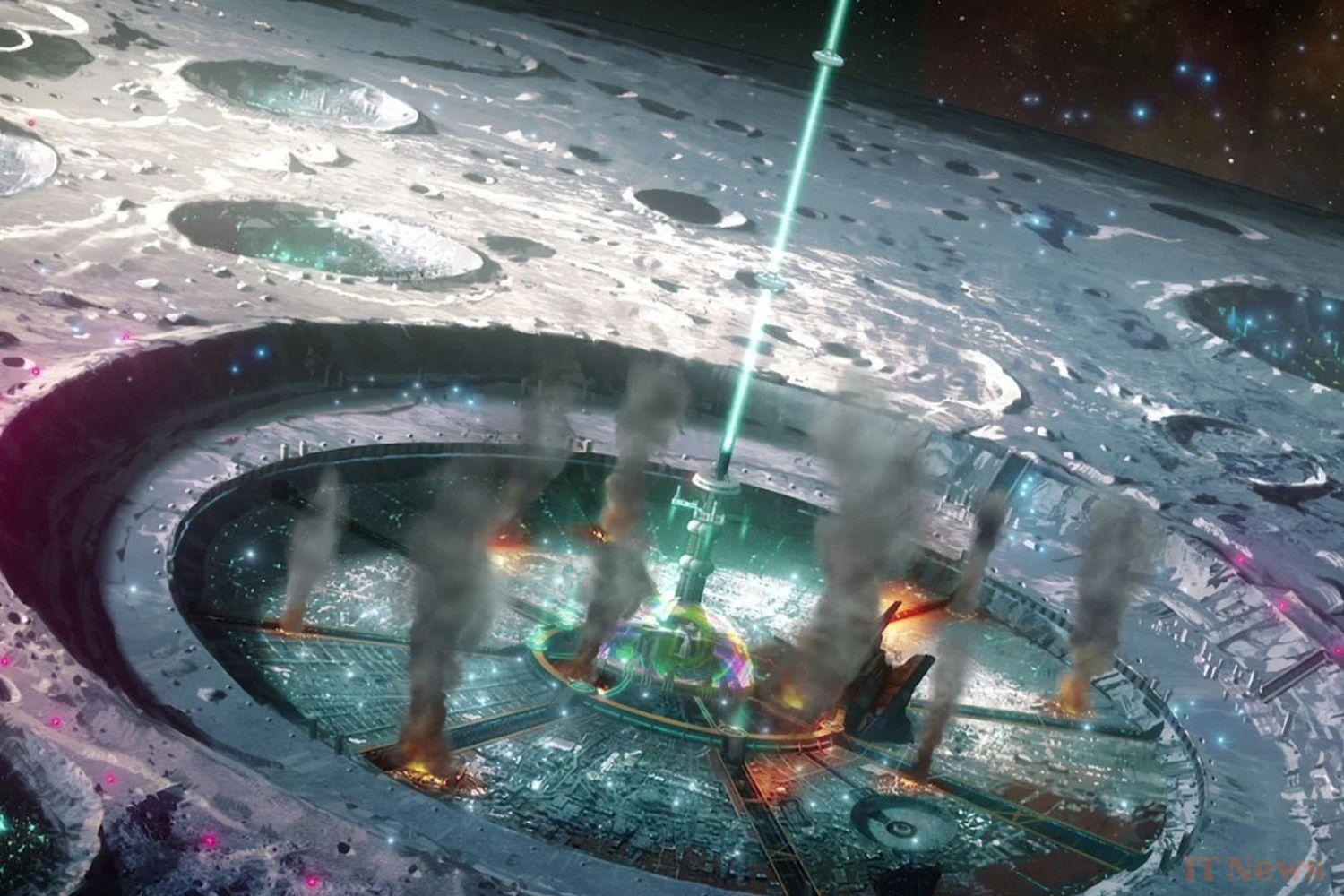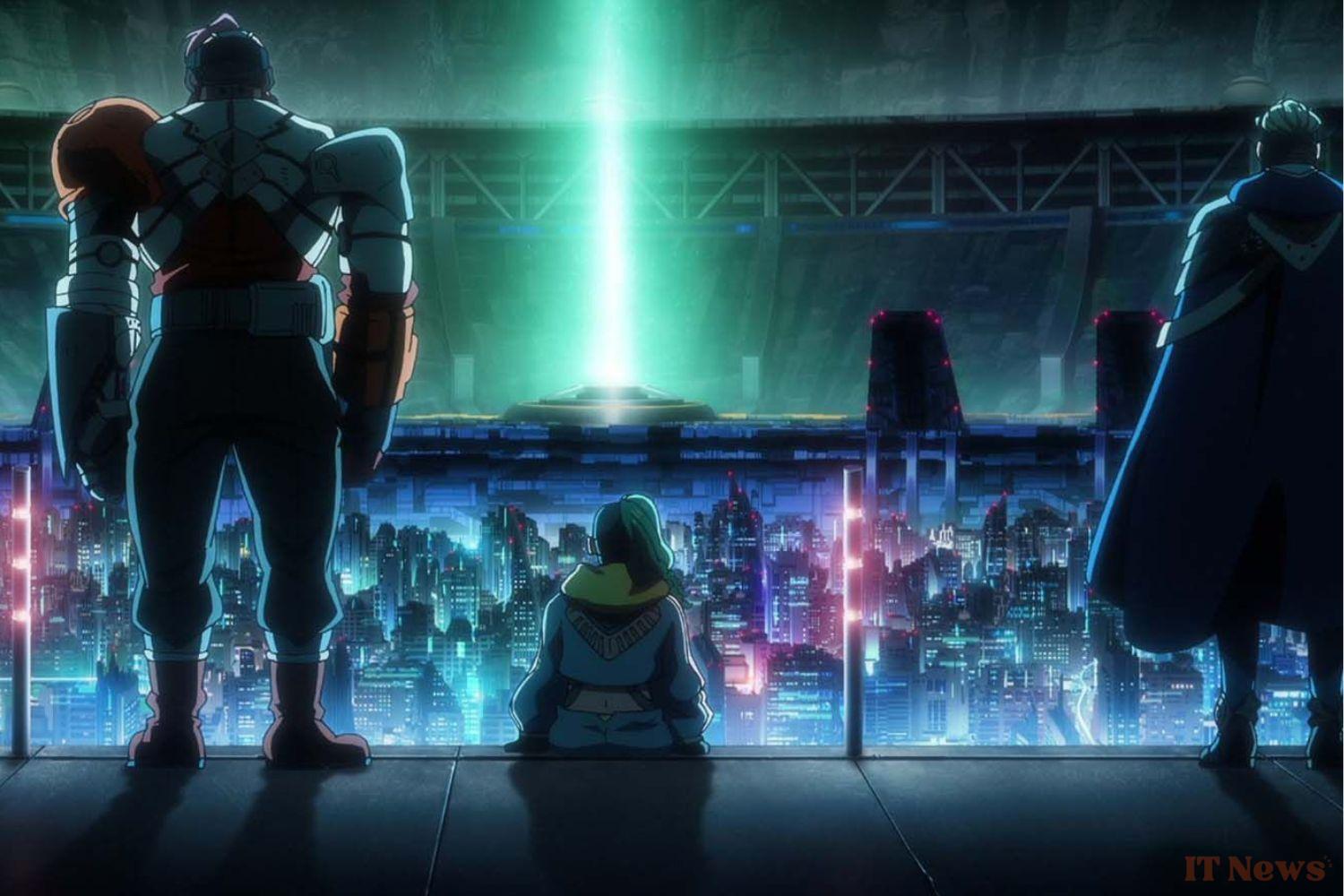Animation fans have something to celebrate right now, great offerings are pouring in on SVoD services, with some big names behind them. The creator of Cowboy Bebop has unleashed his Lazarus on Max, and the madness of Adi Shankar (Castlevania) has struck again on Netflix with his adaptation of Devil May Cry. And it's on this same platform that the director of Attack on Titan and the manga artist responsible for Fullmetal Alchemist have decided to join hands to give birth to Moonrise. A potential hit?
In the future, the now unified planet Earth has successfully colonized the moon. But a rebellion by the inhabitants of the lunar surface breaks out, and a terrible attack provokes a war between the planet and its star. Jacob Shadow, closely linked to the events, joins an assault team tasked with capturing the leader of the Lunar Army.
An eighteen-episode animated series, directed by Masashi Koizuka, who worked extensively on Attack on Titan, co-written by Tow Ubukata (Ghost in the Shell: Arise, Psycho-Pass), and whose characters were designed by Hiromu Arakawa, mother of Fullmetal Alchemist. A technical sheet that already commands respect and, the best part is that this gathering of talents is visible on screen.
1 / A first episode that sets the tone
We can understand that science fiction is not your preferred field. We can understand that you remain unmoved by Japanese animation. Nevertheless, Moonrise deserves that you launch the first episode before judging its sequel. Quite simply because this introduction is a true summary of everything the show has in store for you over the next seventeen episodes. Far from wanting to play it cool for a crescendo, Moonrise shows real generosity in about twenty minutes.
The series starts off at a hundred miles an hour with an ambitious action sequence with robots, big guns, fighting, computer hacking, moving trains... we still know nothing about the story and the characters that Koizuka wants to impress us with in terms of artistic direction. In a few shots, we quickly understand the different skills of the team members and, once this is established, the rest of the episode takes care of characterizing them for us. The nonchalant hero, the responsible heroine, the uptight warrior, the scatterbrain, the handsome guy... the chemistry and complementarity of the group are obvious. We still know almost nothing about them, but we're already attached.
This beginning also sets an atmosphere that will oscillate between moments of bravery, lightness of certain interactions – although she is only a character designer, we see Arakawa's touch with a humor very close to FMA – and real dramatic sequences. We feel that Moonrise doesn't want to be just a catalog series and that it wants to make an impression.
2 / Refusing simplicity
After an introductory episode that refuses to be too introductory, we could expect Moonrise to slow down the pace. After all, eighteen episodes, these days, is plenty of time to relax the viewer. We can't hide our surprise at seeing that the show never slowed down, and each episode significantly advanced the story and the protagonists.
The narration alone avoids chronology, taking us from event to event, then flashing back to reveal a key detail of the plot. This direction allows us to be more interested in the characters and their feelings by linking past and present in a single sequence. We feel a mastery from start to finish, skillfully balancing emotions and tonal differences. Moonrise refuses to hold anything back, and we finish each batch with the feeling of having gotten our money's worth, and yet this furious desire for more, like a drug. An addictive series that never takes a break.
3 / Rewarding the viewer
The biggest surprise really comes from the right mix of revelations. We have perhaps become too accustomed to seeing series that treat its twists and its elements of answers, in order to keep us on the ropes for as long as possible, even if it means superficially filling the gaps in the middle. A pattern that Moonrise does not reproduce, preferring to answer questions quickly, but without forcing, in the natural logic of the story.
Result: we never have this feeling of padding; we get twists and turns right in the face when we were barely beginning to make assumptions. More than once, we are surprised to see the show throw out a plot device that could have served as a conclusion in a good number of other productions, here put on the table while we are barely enjoying the entrance. Moonrise is visually rich, but it is also made with great intelligence and this desire not to betray our trust, to take care of the content and the form right to the end. Aiming for the moon, that didn't scare it.






0 Comments